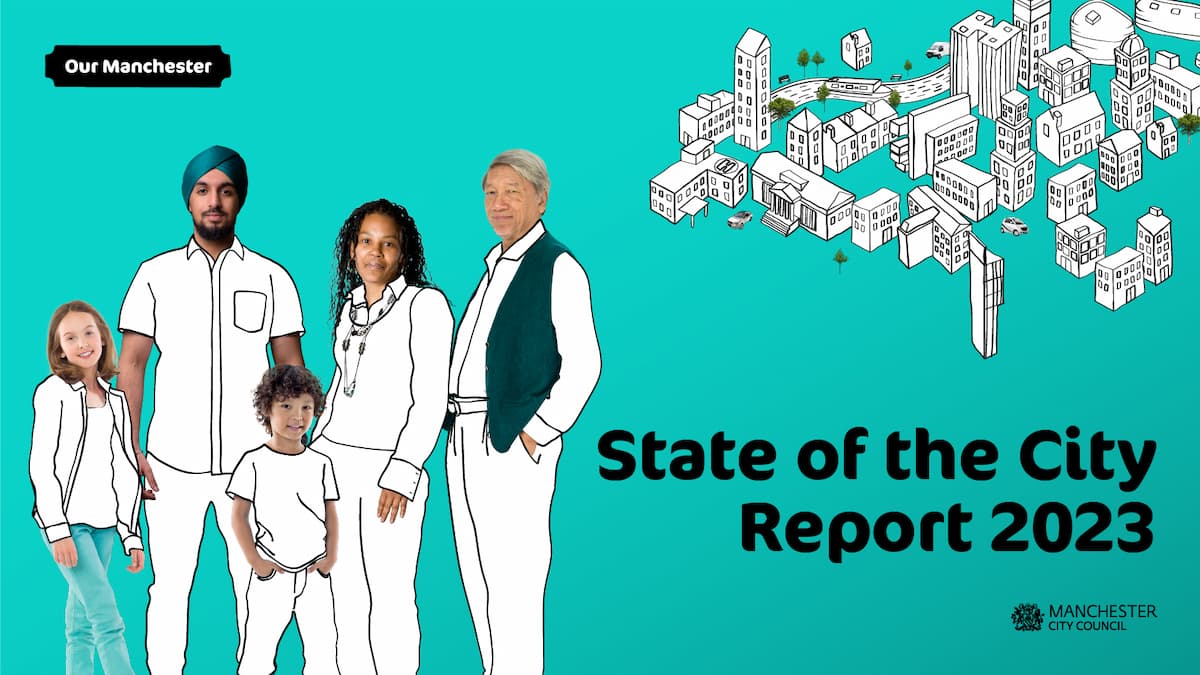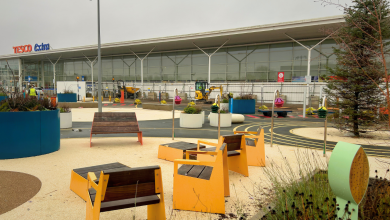State of the City Report 2023: Key Insights and Future Challenges for Manchester

Table of Contents
he annual State of the City report for 2023 has been released, providing a comprehensive analysis of Manchester’s progress and ongoing challenges under the “Our Manchester Strategy – Forward to 2025.” Developed in collaboration with businesses, community groups, and residents, the strategy outlines five key objectives: sustainability, skills, equity, livability, and connectivity.
A Thriving and Sustainable City
Manchester’s population reached an estimated 618,800 in 2023, with nearly 100,000 residents in the city centre. The city continues to grow economically, particularly in sectors such as digital, tech, and professional services, with 2.2 million sq. ft of office space under construction. Recognized as a Living Wage Place in 2022, Manchester is also enhancing its appeal as a vibrant, inclusive hub for living, working, and tourism, boasting a rich cultural scene and strong international tourism recovery post-pandemic.
Investments extend beyond the city centre, with district areas like Wythenshawe and Withington receiving funding to stimulate community growth. However, rising living costs and a 13-15% increase in rental prices present ongoing challenges. Despite these, the city is committed to building 36,000 new homes by 2032, including 10,000 affordable units, aiming to support diverse, sustainable neighborhoods.
A Highly Skilled City
Education outcomes have improved significantly, with 90% of Manchester schools rated “Outstanding” or “Good” by Ofsted. The city is focused on upskilling residents to ensure they benefit from economic opportunities, though the median monthly wage of £2,114 remains below regional and national averages. Despite economic growth, the Universal Credit claimant count has risen by 6.7%, highlighting the need for continued efforts in job support and wage improvement.
A Progressive and Equitable City
Manchester remains dedicated to equality and inclusivity, tackling health and socio-economic disparities through initiatives like the Making Manchester Fairer (MMF) and the Anti-Poverty Strategy 2023–2027. The city has seen a 17% reduction in rough sleeping between 2022 and 2023, yet homelessness remains a pressing issue, with presentations increasing significantly. Manchester has also partnered with UNICEF to become a Child Friendly City, aiming to create a safer, more inclusive environment for young residents.
A Liveable and Zero-Carbon City
With a commitment to sustainability, Manchester aims to become a zero-carbon city by 2038, reducing council emissions by 8.9% in 2022-23. Efforts include expanding green spaces, retrofitting buildings, and investing in sustainable energy. In 2023, the city hosted over 7.2 million park visits and nearly 2,000 events, reflecting a thriving green infrastructure. The opening of Aviva Studios, Co-op Live, and the Manchester Museum further bolstered the city’s cultural landscape, drawing international attention.
A Connected City
Manchester’s vision of becoming a world-class digital city is encapsulated in the Manchester Digital Strategy: Doing Digital Together. The city is closing the digital divide, building robust infrastructure, and expanding skills to support its growing digital and tech ecosystem. The 2023 City Centre Transport Strategy promotes sustainable travel, with the Bee Network Cycle Hire scheme reaching 75,000 users and covering 1.6 million kilometres. Public transport remains a key focus, with 63% of weekday morning trips into the city centre made by public transport.
Overall, the State of the City report highlights Manchester’s significant progress while acknowledging the need for continued action on challenges such as inequality, housing affordability, and environmental sustainability. The city remains committed to building a prosperous, inclusive future for all its residents.




